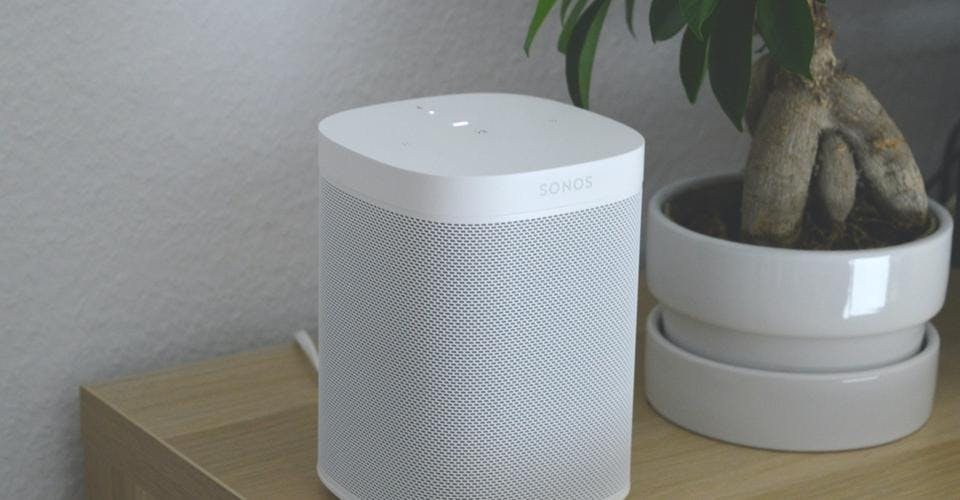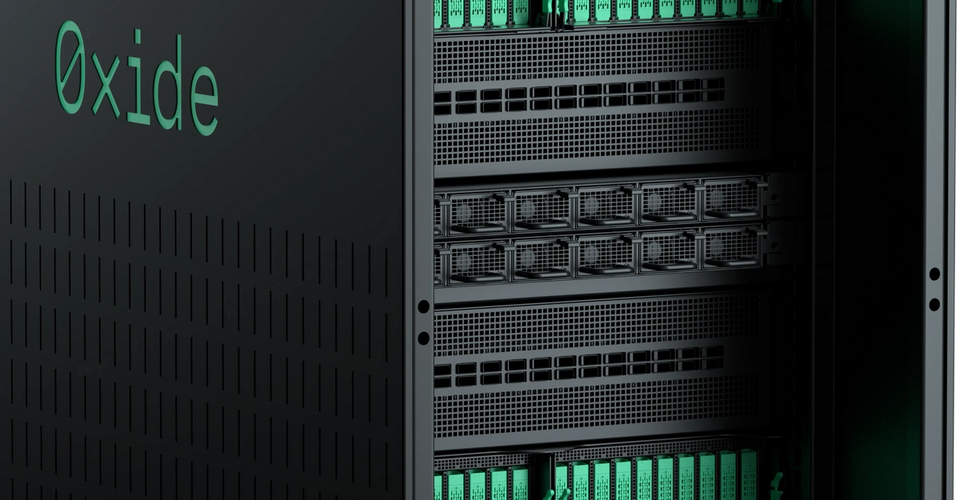As a smart home aficionado that cares about privacy I rarely ever find a product that is a 10/10. I always want to see some small change. So here it is, a list of 5 concrete wishes. These are things I would pay (good) money for.
1. An upgradeable Sonos
I'm a big Sonos fan. It offers an unbeatable combination of sound quality, price, design, product choices and multi room reliability. There are several things to dislike about Sonos of course, but my number one is the fact that while the speaker elements and amplifier themselves probably could last you 20 years, the embedded system can not. The split between S1 and S2 is fair to me, there will always come a time when the embedded system in the speakers just aren't powerful enough to handle the software.

I really wish Sonos would use a modular approach where you could swap the compute module and networking components for a newer and more powerful version. A compute module revision could be a complete revamp as the only specs it needs to follow is taking a certain voltage in and delivering sound out to the amp. Imagine a slide-in module that you could pull out and replace. A lot of people are wary of buying Sonos due to their mistreatment of deprecations in the past, this would go a long way to alleviate that. I don't foresee this happening, to the extent where it might is more reasonable to hope for a brand that comes up with good plug and play speakers on the open source OtterCast platform.
2. Law enforced local device API
If a smart home gadget is programmable – as every cloud gadget is – then it should be required by law to offer the same API in a local-only fashion. For most smart home devices what I really want is to airgap it and only connect to it from my local network. Cloud support is great, and I accept that you might offer 10x value because in your cloud you might be running actually smart algorithms to help control my device (well, you actually should anyway).
The problems with requiring a cloud solution are manyfold: smart tech in cabins with no internet, what happens when the smart tech startup shuts down after 5 years and after I bought 25 devices. But mostly it should just be my damned right to use my product as I please.
This is why I primarily stick to Z-Wave and Zigbee.
Companies should do this for the sheer business value offered towards the niche group of enthusiasts that would pay (a premium) for it. This group vets the choices of hardware for a much bigger group again. There are real problems that probably scares companies from doing it, it reverses the contract from "consumer trusts us" to "we trust the consumer". Over The Air upgrades become harder because you can't easily deprecate anything because of the unknown integrations running out of your sight. At the same time, increased exposure would expose flaws in security and make for more reliable products down the road.
3. A serious smart home hub/server brand
There are a ton of hubs out there. The one thing they all have in common is that they are crap. In fact, most hubs serve more as lock-in mechanisms than as a base you can invest in for a 10 year perspective.
Most smart homes today are not that smart, so todays underpowered hubs are capable enough, but I do hope to see smarter smart homes happening over the next 5 years. Most advanced smart tech relies on cloud components and lock-ins. If you buy a consumer/prosumer grade security camera it will come bundled with a monthly subscription model and cloud storage of your footage. It seems convenient at first, you get access to your camera feed and history from everywhere and you don't have to consider data storage. It locks you in to their proprietary system. If you get a few Arlo cameras you are now locked in to buying more of their cameras even though you might want a few Blink cameras. Voice assistants are another example of a resource intensive device class that tie you to a cloud solution.
Most serious smart home enthusiasts run on more capable servers/computers and this is where we need to go in order to be able to run all the device types we want without having to resort to a number of cloud silos for each device. I'm not despising on the cloud in general, I make cloud based solutions for a living after all, but for entirely private data you want local-first and then selective opt-in for sharing data to a cloud solution.
A future with seriously smart homes needs local processing and reliability. Its not the future device manufacturers are moving towards but its the future we deserve. I don't want to send all my sensor data, my weekly house plan layout from the robovac, my camera feeds, or anything else happening in my house to 10 different cloud solutions just because we don't have the compute and storage needed locally.
The ownership of data should be mine alone.

In order to support my own home I run a (future cluster) linux server with kubernetes with a lot of different supporting software for monitoring, analytics, storage and insights. I would love for someone to kill this need for me by being the Oxide Computers of smart homes. I'm looking for a small-form-factor clusterable device with abstractions offered on top of linux to add workloads easily. The idea would be a server and OS combination so resilient, capable of self-heal and ease of management that I could install it at at my parents.
Ideally it would offer modules for switching and routing as well, so you could have it as the one and only compute/network brain in a house and still have a great system.
4. A Z-Weave or Zigbee thermostat that makes sense
Just give me a super clean unit with a screen and a big, slick rotary encoder. Period.
5. A reliable indoor positioning system
I'm not entirely sold on biohacking just yet, but what the heck, I would love a tiny chip implanted that could track me around the house. It would be a great signal for a lot of automation. Music and lights following me around the house for example. Some of the previous points come in play here as well – I would not want any of this data to leave the house.
I'm open for more realistic implementations, but it can't depend on carrying a phone or some other big and heavy object, and it can't involve camera stream recognition because no way would I like to impose the risk of a breach on that data Watches seem like the best viable path if there existed a usable open beacon specification adopted by smartwatch makers that allowed the watch to be tracked.
Final thoughts
I hope to see an ecosystem that becomes more privacy friendly over the years, that relies less on cloud based lock-in schemes to make money and systems that are built to stand the test of time.
